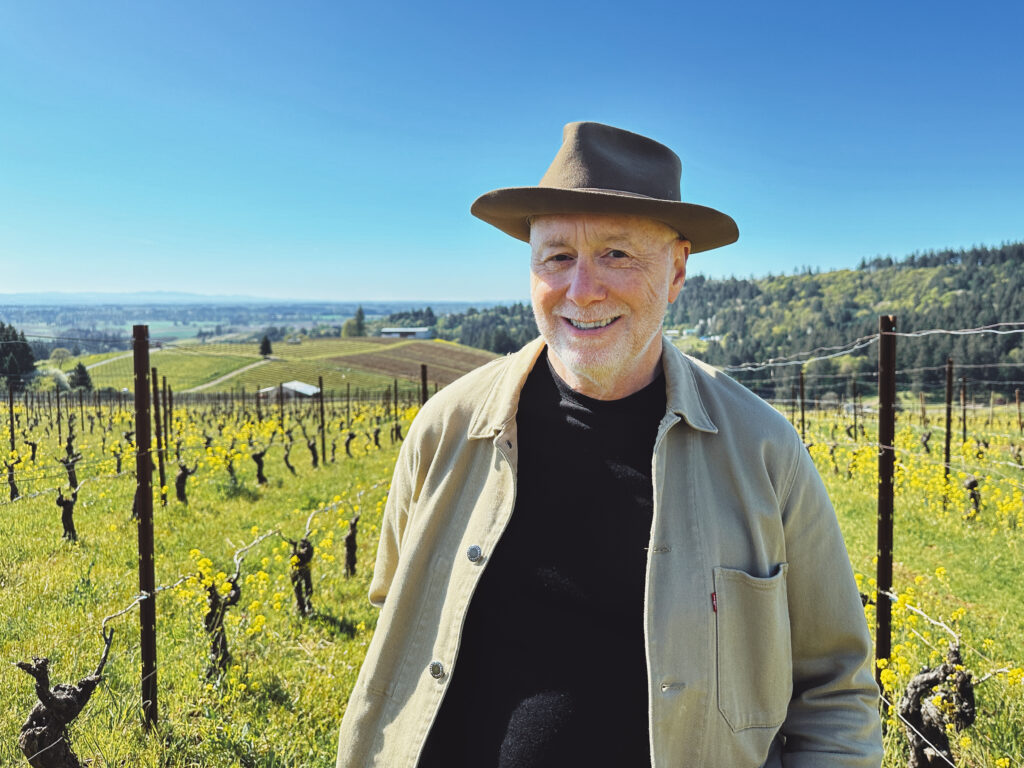Winderlea’s Deep Roots in Biodynamic Farming
Produced in partnership by Travel Dundee and the Dundee Hills Winegrowers Association.
In the heart of Oregon’s Willamette Valley lies Winderlea Vineyard & Winery, where owners Bill Sweat and Donna Morris proudly steward the land and champion sustainability by farming biodynamically®.

Reflecting on their journey, Bill shares, “We’ve been allowed to do things we believe businesses should do. Sustainability in the vineyards and the winery was the first step.” They purchased the vineyard in 2006 and the commitment to sustainable farming was necessary from the outset. With Phylloxera present in the vineyard, Bill knew the best way to maintain healthy vines was through biodynamic farming, a holistic approach that transcends conventional organic practices.
“Biodynamic farming is like organic plus,” Bill explains. Rooted in the principles laid out by Rudolf Steiner a century ago, it integrates holistic practices to enhance biodiversity on the farm. “Everything below, on, and above the ground influences the crop,” Bill elaborates. It’s a philosophy that guides every aspect of their operation at Winderlea.
There was much to learn. With meticulous requirements to achieve biodynamic certification, as well as more hands-on work to care for the vines due to an inability to use conventional tools, Bill turned to trusted advisors. “The wine industry is such a collegial community,” he says. “There is no question you can ask someone that won’t get answered.”

Now Bill and Donna are part of a growing cohort of biodynamic winemakers; nearly every vineyard surrounding theirs holds to biodynamic practices, as do many others throughout the Dundee Hills. They gather several times a year to stir – for an hour by hand – the organic and nutrient-rich mixtures they spray on the vines. The first, Preparation 500, is made with manure packed into a cow horn and buried in the ground through winter. Small amounts mixed with water will spur the growth of microbes in the soil, which in turn encourages the plant’s growth. The second, Preparation 501, is made with ground silica, again packed in a cow horn and buried for several months. It’s sprayed later in the growing season to promote photosynthesis.
Sheep, goats, chickens, and a honey bee hive coexist with the vines, contributing to a thriving ecosystem. Grazing sheep manage vegetation growth before bud break, reducing tractor passes, and fostering soil health. Grazing by the goats and sheep stimulates the cover crop differently than mowing, enhancing productivity and enriching the soil. These animals are important partners in Winderlea’s journey towards sustainable farming and ecological balance.
At Winderlea, biodynamic practices aren’t just a set of techniques; they’re a way of life. Their journey towards sustainability hasn’t gone unnoticed. Winderlea became the second B-Corp winery in Oregon and the fourth worldwide in 2015, an accolade that underscores their commitment to using business as a force for good. “While making money is nice, it’s not our only priority,” Bill emphasizes. “We put people and place in front of that.”
A sip of Winderlea’s fine wines will convince you that award-winning wines begin with healthy fruit grown in well-tended soil. Bill and Donna prove that making excellent wine and caring for the land go hand in hand.
Photography by Molly Bailey
